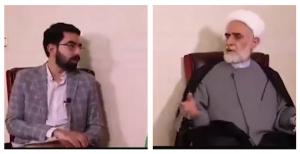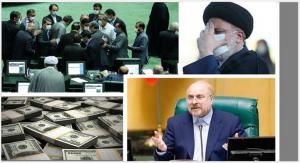(Video) Iran: Regime officials voice concerns about troubling road ahead
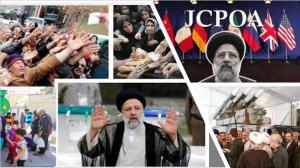
The mullahs’ regime ruling Iran is facing significant challenges both domestically and internationally. During the past 43 years , the regime has gone from one crisis to another. Today mullahs face a tsunami of economic, social, and political crises.
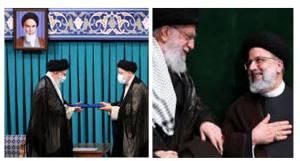
Ali Khamenei thought to bring current crises under control with the appointment of Ebrahim Raisi as a president who is a very radical figure, following a series of disqualifications of figures previously thought to be very close to his own inner circle.
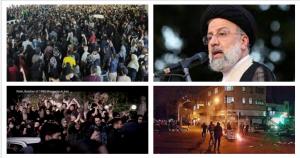
After a year in office, Raisi as president has not been able to bring under control any of the crises before Khamenei and his regime. Voices from within the regime are sounding alarm bells about the status quo and the disturbing road ahead.
The answer lies in Iran’s explosive situation and the regime’s inability to contain an extremely restive nation, described by many analysts as a powder keg.
Despite all this, there have been lesser circumstances, as we are witnessing today, when the mullahs’ have been facing a tsunami of economic, social, and political crises both inside the country, throughout the Middle East, and across the globe.
The result of such troubling circumstances is vivid in the regime’s inability to contain domestic dilemmas and internal political disputes.
Iranian regime Supreme Leader Ali Khamenei sought to bring these matters under control with the appointment of Ebrahim Raisi as his regime’s president following a series of disqualifications of figures previously thought to be very close to his own inner circle.
Raisi, however, is dubbed the “butcher of Tehran” for his direct role in the 1988 massacre of over 30,000 political prisoners.
He also served as judiciary chief when the regime cracked down on and killed over 1,500 protesters during the November 2019 protests that shook the regime to its very core.
As a result, after a year in office, Raisi as president has not been able to bring under control any of the crises before Khamenei and his regime.
Voices from within the regime are sounding alarm bells and raising concerns about the status quo and the disturbing road ahead.
“I am making an official announcement. we have reached the end of the road, meaning we are completely cut off from the people and the people have lost all hope in us. We have reached the very end. We are forced to push through our measures by resorting to force,” said Rasoul Montajabnia, a figure close to the regime’s higher echelons of power.
“[Raisi] has not fulfilled any of his promises. in fact, [Raisi]’s measures have rendered a complete disappointment among the people regarding [regime founder Ruhollah Khomeini], the revolution, and the entire state. The truth is, the people are voicing their anger and expressing it in their actions. If you don’t believe me, provide freedom to the people for just one day and see what they will do!” he warned.
Such frank remarks from a figure close to the regime’s senior hierarchy are unprecedented. Montajabnia went even further by tacitly targeting Khamenei himself in his criticism.
“Corruption has become systematic, and some people are refusing to accept this reality! this is not a good way to rule. We are experiencing the worst type of rule in history,” he added.
What Montajabnia is referring to is, of course, nothing new in this regime. The mullahs have long established their reign based on domestic crackdowns, executions, torture, corruption, and stealing from the Iranian people.
The question is why are regime officials voicing such realities like never before and why are we witnessing these remarks published in the regime’s state-controlled media?
The answer lies in Iran’s explosive social circumstances and the regime’s inability to contain an extremely restive nation, described by many analysts as a powder keg.
Montajabnia’s words are quite telling, especially when he says, “provide freedom to the people for just one day and see what they will do!”
Anyone familiar with Iran under the mullahs’ regime knows this is only the tip of the iceberg regarding the regime’s status quo that covers the entirety of the mullahs’ apparatus.
Also voicing grave concerns is Mohammad Pourmohammadi, another figure close to Khamenei and best known for his role in the 1988 massacre and the regime’s long record of human rights violations.
“Every day we are in dispute with one another over various issues. What is all this divide, foul language, allegations, and quarrels for?” he said on August 23 in an interview with the semi-official Shafaqna news agency.
Ali Rabi’i, a career official in the regime’s Ministry of Intelligence and Security (MOIS), referred to the country’s restive society and voiced significant warnings.
“This negative mentality can pave the path for destructive results and social instability (read protests and uprisings),” he said on September 13 in an interview with the state-run E’temad daily.
These warnings are also being voiced in the regime’s Majlis (parliament). “Even if hundreds of billions of dollars are poured into the country from abroad. It would still be impossible to reach our objectives,” said Parviz Ghazi Mahale on July 24 in an open session of the Majlis.
Such remarks, aside from who or what entity of this regime, shed light on an undeniable reality.
Regime officials are deeply concerned about the ongoing crises riddling their entire apparatus coupled with a fuming nation that is protesting in the streets on a daily basis while bearing the potential of launching new uprisings.
Shahin Gobadi
NCRI
+33 6 61 65 32 31
email us here
A graduation ceremony was held for trained female police officers in Tehran on Wednesday.They are sent to the streets to watch out for the women's hijab.
Legal Disclaimer:
EIN Presswire provides this news content "as is" without warranty of any kind. We do not accept any responsibility or liability for the accuracy, content, images, videos, licenses, completeness, legality, or reliability of the information contained in this article. If you have any complaints or copyright issues related to this article, kindly contact the author above.

